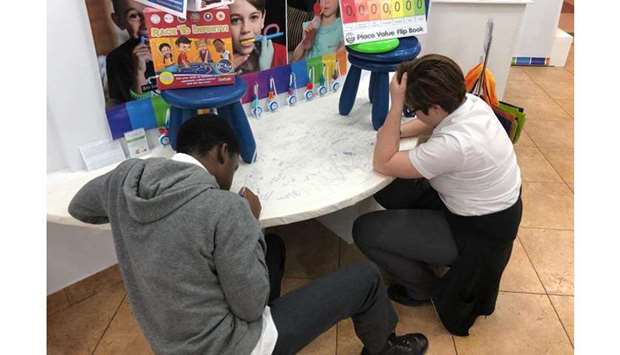“Autists are the ultimate square pegs, and the problem with pounding a square peg into a round hole is not that the hammering is hard work. It’s that you’re destroying the peg,” says Paul Collins, American author and editor.
Another sane piece of advice on how to deal with autistic children and people is that they can’t learn the way we teach, we teach the way they learn. The voices to raise awareness about how to deal with or teach autists continues to grow stronger all across the world.
Nearly a quarter century ago, the Autism Society of America launched a nationwide effort to promote autism awareness, inclusion and self-determination for all, and assure that each person with Autism Spectrum Disorder (ASD) is provided the opportunity to achieve the highest possible quality of life. Like many organisations and groups working for autistic people globally, Sensory Souk leaves no stone unturned to raise the awareness regarding ASD and how to teach and treat the autists.
Most of the parents that have kids with special needs will tell you that even if they do not have the power to make life fair, they have the power to make life joyful and that is the goal they strive to achieve. Sensory Souk is the first platform of its kind in Qatar to provide professional therapy tools, developmental toys and specialist educational products for children with special needs.
Raana Smith, US expatriate, and Alison Saraf, British expatriate in Qatar, are two proud and brave mothers, and each of them has a son with special needs. They enjoy the experience of raising children and appreciate every little achievement of their sons in their day to day lives. They have turned into trainers and entrepreneurs providing necessary awareness and equipment to meet the requirements of children with special needs.
“In celebration of Autism Awareness Month in April, Sensory Souk brings you two dynamic and knowledgeable presenters on the topic: ‘Autism: Think Different’. Autism is a spectrum and is not a linear line so there will be differences in experiences, treatment, and methods for working with people along this spectrum. The informative seminar will discuss these different experiences, treatments, and methods at Royal Plaza on March 21,” informed Raana while talking to Community.
“Educators, administrators, assistants, shadows, and learning support assistants can learn a lot from our two experts who are going to share their invaluable knowledge and experience,” she added.
One of the speakers is Selina Collins. Selina started her career in a specialist programme for highly skilled teachers placed in high need areas in New York City. She worked as a literacy coach, special education teacher and head of teaching and learning throughout her educational career. Selina has a Masters in Special Education, Masters in Public Health Education and qualifications in Educational Leadership.
In her message Selina has said: “As Head of Learning Support, I work with staff and parents to help identify, support and overcome barriers to learning. Using a variety of tools, my team and I help with academic and behavioural interventions across the whole school. In a nutshell, I believe that all children have barriers to learning. Therefore, learning is never linear. Each student is unique. And it’s our job to focus on how to bridge those gaps/barriers in learning that is most important.”
Louise Kotek, the other presenter, is the Head of Secondary Learning Support at Doha College. She is new to Doha but not that new to the world of education; 14 years and still learning. Louise’s first job, linked to education, was that of a learning assistant in a secondary comprehensive school, after one year it was advised that she should train to be a teacher. Louise started out as an English teacher in the UK, taking on the roles of English as an additional language (EAL) and literacy co-ordinator before being promoted to Special Educational Needs Co-ordinator (SENCo) in 2011. She was SENCo for three years, completing the National Award for SEN Co-ordination, staying in the same UK school for eight years. Louise then moved to Saudi Arabia and worked as the Inclusion Co-ordinator at The British International School Al Khobar for five years. Here Louise completed the National Professional Qualification for Leadership (NPQSL).
Taking pride in her non-judgemental approach to support, Louise states: “As the head of learning support in a secondary school, I listen to pupil and parent voice and respect it. A SENCo has the responsibility of managing and coordinating the well-being, learning and education of all SEN pupils.”

LEARNERS: Children with special needs attending an internship programme at Souk.


